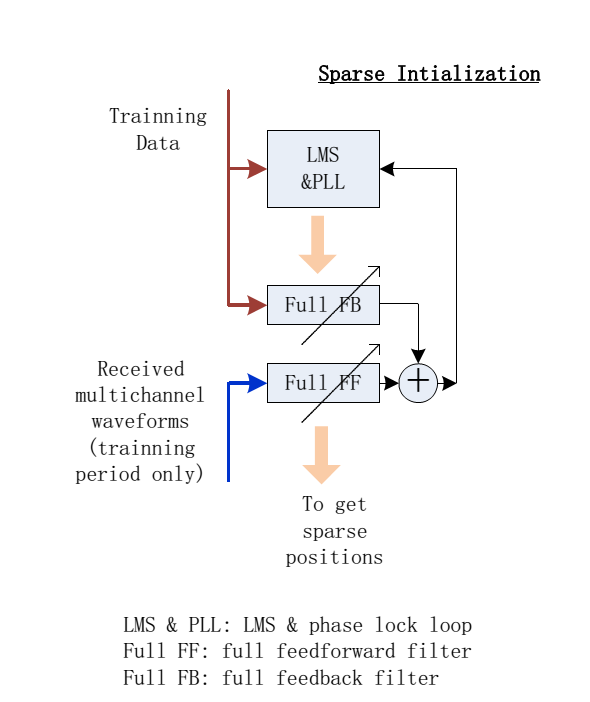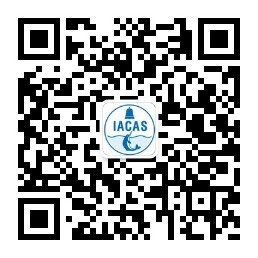The characteristic of underwater acoustic communication channel is sparse, time-varying and multipath, especially in long distance shallow water. And adaptive turbo equalizer can track the variability of underwater channel. However, it faces the problem of large number of equalizer taps, which decreases the tracking speed and increases the misadjustment noise and computation complexity. In addition, the optimum tap selection of equalizer based on sparse channel estimation is rather complicated, especially with multichannel and soft decision feedback.
So WU Yanbo and ZHU Min from the Institute of Acoustics, Chinese Academy of Sciences present a low complexity method of multichannel adaptive turbo equalizer for large delay spread sparse underwater acoustic channel.
Of the proposed sparse equalizer, several considerations have been taken into account to utilize the benefit of sparse characteristics. First of all, sparse position is constant during one frame. The frame duration used in the proposed scheme is less than one second, during which there is no new path emerging. Besides, each path is a cluster, not a single ray. For the channel impulse response, the sparse position is not isolated but continuous with several symbols. As well, sparse position needs to be jointly optimized among different receiving array elements. With these considerations, the proposed method of sparse position initialization contains the following steps as shown in Fig. 1.

Fig. 1 Proposed method of sparse position initialization (Image by WU).
The method is robust to combat delay spread with a duration larger than hundred symbols and easily implemented on a single DSP chip, which has been verified in the shallow lake and the ocean. It turns out to be that communication distance was from 1 km to 5 km, and there was no error frame with iteration of turbo equalization, even when delay spread larger than 40 symbols and no dominant channel path.
This research was supported by the Chinese National 863 Projects (2009AA093301, 2009AA093601).
The research entitled "Low Complexity Multichannel Adaptive Turbo Equalizer for Large Delay Spread Sparse Underwater Acoustic Channel" has been included in the 4th Pacific Rim Underwater Acoustic Conference (PRUAC) (October 9-10).
Correspondence author:
WU Yanbo, ZHU Min
Institute of Acoustics, Chinese Academy of Sciences, Beijing, China 100190
Email: {wuyanbo,zhumin}@mail.ioa.ac.cn


